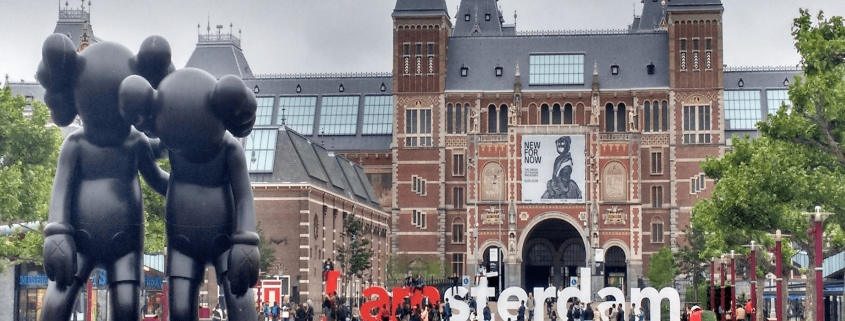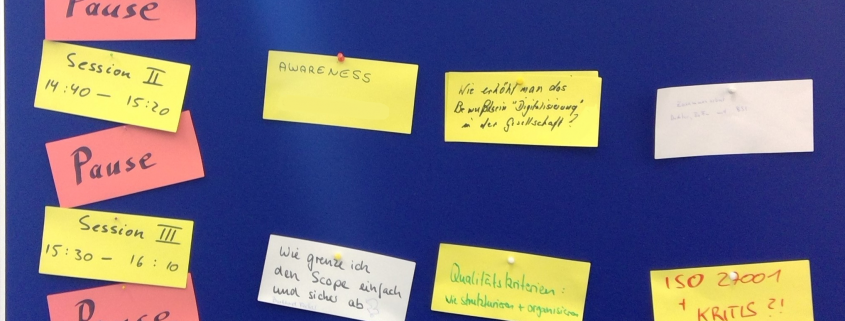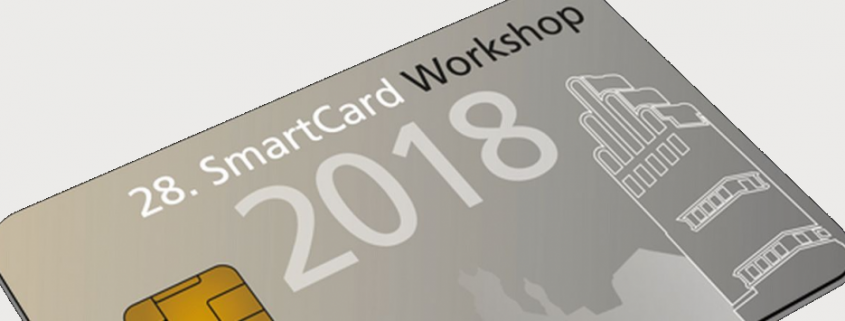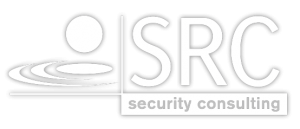The following employee interview with Dr. Max Hettrich allows a look behind the scenes of SRC. We at SRC always have an open ear for our employees and are happy that we were able to ask Max about his career and his work at SRC.
Hey, Max, let’s just start right away. What education do you have?
I’m a physicist. After my studies I first worked in academic research, namely in experimental quantum optics. It was all about lasers, vacuum chambers, and quantum physics. But also computer simulations and digital measurement technology. The IT topic has always been there, even if not in the first place.
How did you become aware of SRC and the job advertisement and why did you apply to SRC?
I became aware of SRC through a colleague at that time, who again knew an employee at SRC. After I learned that physicists are very welcome at SRC and that I have always been interested in IT security topics, my curiosity was aroused.
How long have you been with SRC?
I joined SRC in July 2017, less than a year ago.
How did your training go?
Very carefully considered and structured. Those responsible have really thought carefully about the projects to be considered. I always had enough freedom to find out which topics I liked most.
Which topics are you currently working on?
On the one hand, I deal with many compliance issues in the IT security environment, and on the other hand with reverse engineering of software for mobile devices in order to assess their security against various attack scenarios. These are two quite different subject areas, but they complement each other perfectly.
What are your main tasks and activities in your daily work routine?
Compliance projects are always about analysing a customer’s system and assessing if it meets regulatory requirements. Since no two systems are alike, it never gets boring.
The goal of reverse engineering is to understand the function of software and to extract any hidden assets without having access to the source code. This requires, for example, reading and analysing native code or debugging and instrumenting running programmes.
What does your typical working day look like? Do you travel a lot?
Mostly I work in my office in the SRC office in Wiesbaden. I am, atypical for a consulting firm, rather little on travel, since most work can be done simply best if I am in direct contact with my colleagues on site.
What do you particularly like about SRC?
I find the rather flat hierarchy particularly positive, and great freedom with regard to the selection of fields of activity.
And how do you feel about the working atmosphere at SRC?
I find the atmosphere here extremely pleasant. The fact that SRC is a rather small company with about 120 employees allows a rather informal and direct communication among each other. I believe that many conflicts do not arise as a result.
Keyword Work-Life-Balance: How can work at SRC be reconciled with your private life?
This really works out great! Our working hours at SRC are flexible, overtime hours are always logged and can be compensated later.
What do you think applicants need to bring with them in order to be successful at SRC?
I think the most important thing is a pronounced analytical thinking, and strong self-initiative. If you already have experience in one of SRC’s fields of activity, the better. But my impression is that generalists are also welcome at the SRC. You then have the opportunity to acquire the necessary specialist knowledge on more closely defined topics as required.
One last question: What would you suggest to potential applicants?
Don’t be shy! You can easily find out whether you like SRC’s fields of activity if you have a look at our website and our career portal. If this is the case: Just send us your application!







